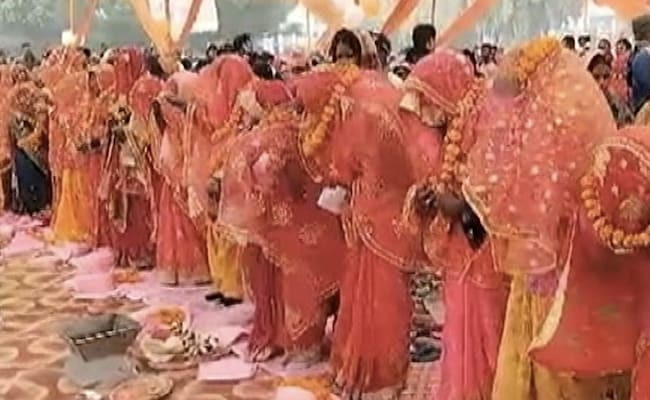[Watch] Massive Wedding Scam Unearthed In UP; Check Modus Operandi

Lucknow: You must heard about different types of frauds as part of rampant corruption in India.
But a wedding fraud?
A massive wedding fraud has indeed been unearthed in UP, which has led to the arrest of 15 people, including two government officials.
The scam surfaced after a video went viral on social media. It showed brides at a community wedding event garlanding themselves.
The mass wedding was held on January 25 in UP’s Balia district, ostensibly under the state government’s Mukhyamantri Samoohik Vivah Yojna event.
Watch the video clip shared by users on X:
In UP’s Ballia, a video of brides garlanding themselves during “Mukhyamantri Samoohik Vivah Yojna event” has surfaced. It is being alleged this was done to embezzle money allocated to the couple under the scheme. pic.twitter.com/M9GbCLx8BI
— Piyush Rai (@Benarasiyaa) January 31, 2024
Officials claimed that 568 couples got married at the event. However, it was later found that many were paid to pose as brides and grooms.
BJP MLA Ketki Singh, who was chief guest at the community wedding, said she was informed just two days before the event.
“I had suspected there was something fishy. But now a complete investigation is being conducted,” she said.
According to a local resident, men and women were paid between Rs 500 and Rs 2,000 for posing as brides and grooms.
“Some women had no one. They were wearing the varmala (garland) themselves. We came to know that people are being paid between Rs 500 and Rs 2,000,” NDTV quoted Vimal Kumar Pathak as saying.
The state government provides Rs 51,000 under Mukhyamantri Samoohik Vivah Yojna scheme, of which Rs 35,000 goes to the girl, Rs 10,000 for purchasing wedding material and Rs 6,000 for the event.
Officials said the scam was unearthed before any money was transferred to the accused.
“We immediately formed a three-member committee to investigate the matter and verify all the beneficiaries. Till the time the investigation is completed, no benefits will be transferred to beneficiaries,” they said.

Comments are closed.